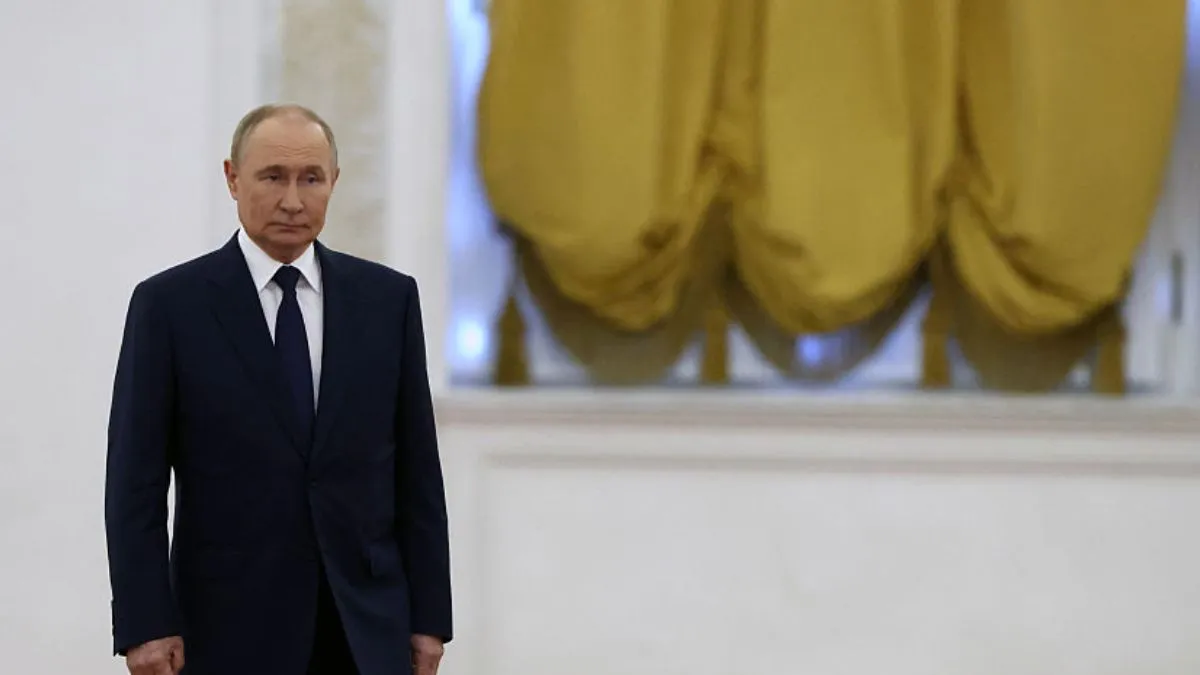A newly released book, The Tsar in Person: How Vladimir Putin Fooled Us All, has made shocking claims about the Russian president’s family background, alleging that his father attacked his mother with a pitchfork when she was 17 years old, an incident that resulted in the loss of her eye and a subsequent forced marriage.
According to the book, the attack occurred in 1928 in a village in the Tver region. A local witness, Anfisa Kormilitsyna, recounted that Putin’s father, accompanied by a group of male friends, arrived at Maria “Marusya” Shelomova’s home when she was alone. When Maria refused to let them in, the men began breaking down the gate with a pitchfork. In the chaos, Putin’s father allegedly struck Maria in the face with the pitchfork, “accidentally gouging out” her eye.
Kormilitsyna claimed that Maria was taken to the hospital immediately, but doctors were forced to remove her eye completely. Losing an eye at the time was considered a major social disgrace for a young woman. Maria’s mother reportedly threatened to take Putin’s father to court unless he married her daughter. The couple wed soon after, but according to the witness, Maria became self-conscious about her glass eye for the rest of her life, often avoiding direct eye contact in conversation.
The book also portrays Putin’s father as having a reputation for harassing young women in the village. One allegation describes him lifting girls’ skirts and tying them above their heads so boys could see their underwear, behaviour said to have been widely known among locals.
These revelations starkly contradict the image Putin has consistently presented of his parents. The Russian leader has publicly described them as decent, moral people, claiming he never saw his father drunk or heard either parent use foul language. Given that his mother was in her forties when he was born, some have speculated that Putin might have been adopted or born outside of marriage.
The book’s authors argue that Putin has deliberately shaped a sanitised version of his family history to present them in an idealised light, a strategy they compare to tactics used by other authoritarian leaders to create sympathetic personal narratives. If verified, these claims could significantly alter the public perception of the Russian president’s personal origins.


